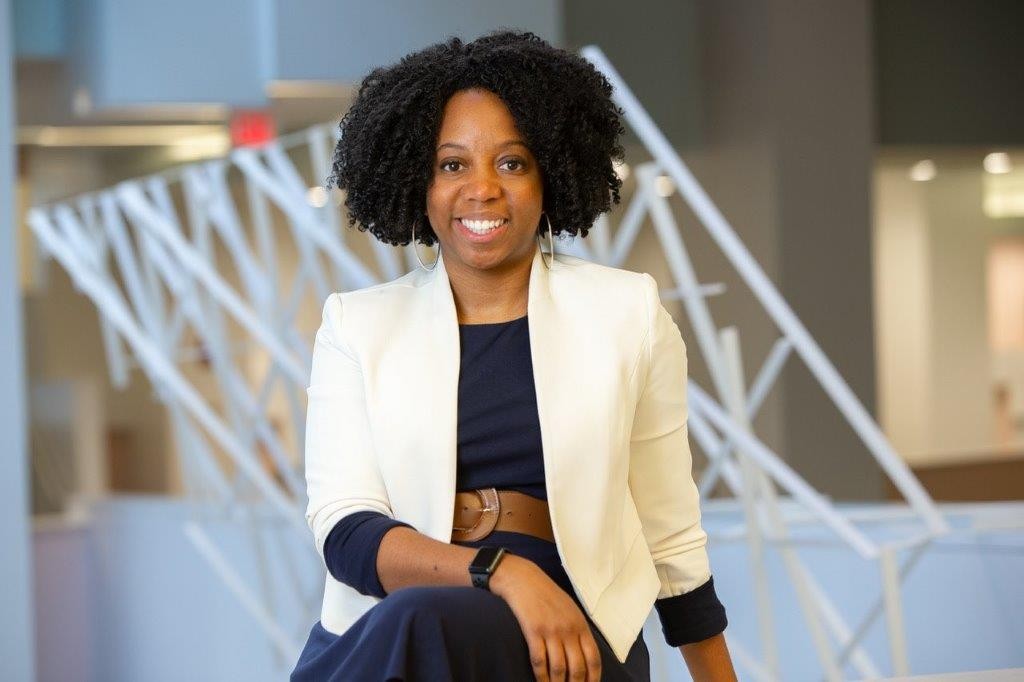
UC Digital Futures webcast to take on virtual learning, literacy
Researchers, policy makers and industry leaders to explore how to keep young learners engaged
The coronavirus pandemic and efforts to stop its spread have had far-reaching effects on nearly every facet of American life, from how we shop to how we work. Now, as K-12 schools reopen, online learning has become the new reality for children across the country.
How effective is online learning for young learners, particularly those learning to read? How can educational technology keep these children interested? As the adage goes, children learn to read so they can read to learn.
Researchers, policy makers and industry leaders will explore how parents and teachers can keep young learners engaged and stimulated during this period of virtual learning when the University of Cincinnati Office of Research and UC Digital Futures present “Emerging Technologies in Literacy: How EdTech is Helping our Children Learn to Read.” The virtual panel discussion will take place Thursday, Aug. 20 from 11 a.m. to noon EST.
In addition to the virtual learning measures made necessary by the pandemic, our expert panel will also discuss the future of EdTech as it relates to improving literacy across the U.S. education system.
Panelists

Renee Seward
Renee Seward, associate professor of communication design at the University of Cincinnati College of Design, Architecture, Art, and Planning. Seward is the creator of See Word Design. The award-winning software service uses visual cues to help children understand phonics and improve reading comprehension. Additionally, Seward is a Digital Futures Lab Leader.
Mike Tholfsen, principal group product manager at Microsoft Education. Tholfsen is responsible for Microsoft's inclusive classroom product strategy, focusing on empowering students of all abilities. He leads Microsoft’s Immersive Reader set of products, which help students with dyslexia, dysgraphia, ADHD, as well as non-native speakers and emerging readers. Immersive Reader has 23,000,000 monthly active users across all apps and platforms.
Kent Kanipe, vice president of engineering with Learning A-Z, a literacy-focused PreK–6 education technology provider. Its products blend traditional teacher-led instruction with technology-enabled resources to make teaching more effective and efficient, practice more accessible and personalized, assessment more strategic and automated, and learning more informed and proactive. The company’s products are used by more than 7 million students in more than 170 countries.
Melissa M. Weber-Mayrer, director of the Ohio Department of Education’s Office of Approaches to Teaching and Professional Learning. Weber-Mayrer is charged with leading the state of Ohio’s literacy improvement efforts. Through various coordinated initiatives, the state has invested heavily in the improvement of language and literacy instruction. These initiatives support a common mission: ensuring that all school districts effectively teach all children to read.
Moderator
Jai Chabria, former senior advisor to Ohio Governor John Kasich and current managing director at Mercury, a Global Strategy Firm.
About Digital Futures
Digital Futures is the University of Cincinnati’s future-focused, transdisciplinary research program. Its labs and institutes lead real-world learning, problem-based research and scholarship, and creative endeavors that address the multifaceted challenges affecting individuals and communities in our increasingly urbanized society.
Featured Image: Photo/Jerry Wang/Unsplash
Next Lives Here
Research is central to our purpose. We push limits and challenge ideas to discover what’s next, unleashing our vision to lead public, urban universities into a new era of innovation and impact.
Both locally and globally, Urban Futures is focused on partnerships that overcome barriers and apply innovative, scalable solutions to the challenges that urbanization poses. UC researchers work with external partners to accelerate economic growth and socio-economic mobility to create a better future for all.
Related Stories
Cincinnati a top destination for street art, museums
February 27, 2026
Discover why Cincinnati is a top destination for street art and museums, ranked among USA Today’s 10Best for 2026. Explore how University of Cincinnati research shows public art boosts community vitality, and find the best things to do near UC’s campus for students and visitors alike.
Intrapreneurship: Strategies to promote internal innovation
February 27, 2026
Intrapreneurship encourages employees at large companies to innovate and test ideas with an entrepreneur’s level of freedom. Learn how to become an intrapreneur in your organization.
'Paradigm-shifting' study confirms effectiveness of long-acting HIV treatment
February 26, 2026
The results of a clinical trial involving the University of Cincinnati, recently published in The New England Journal of Medicine, show people failing HIV treatments with oral medications were able to be treated successfully using injections.
